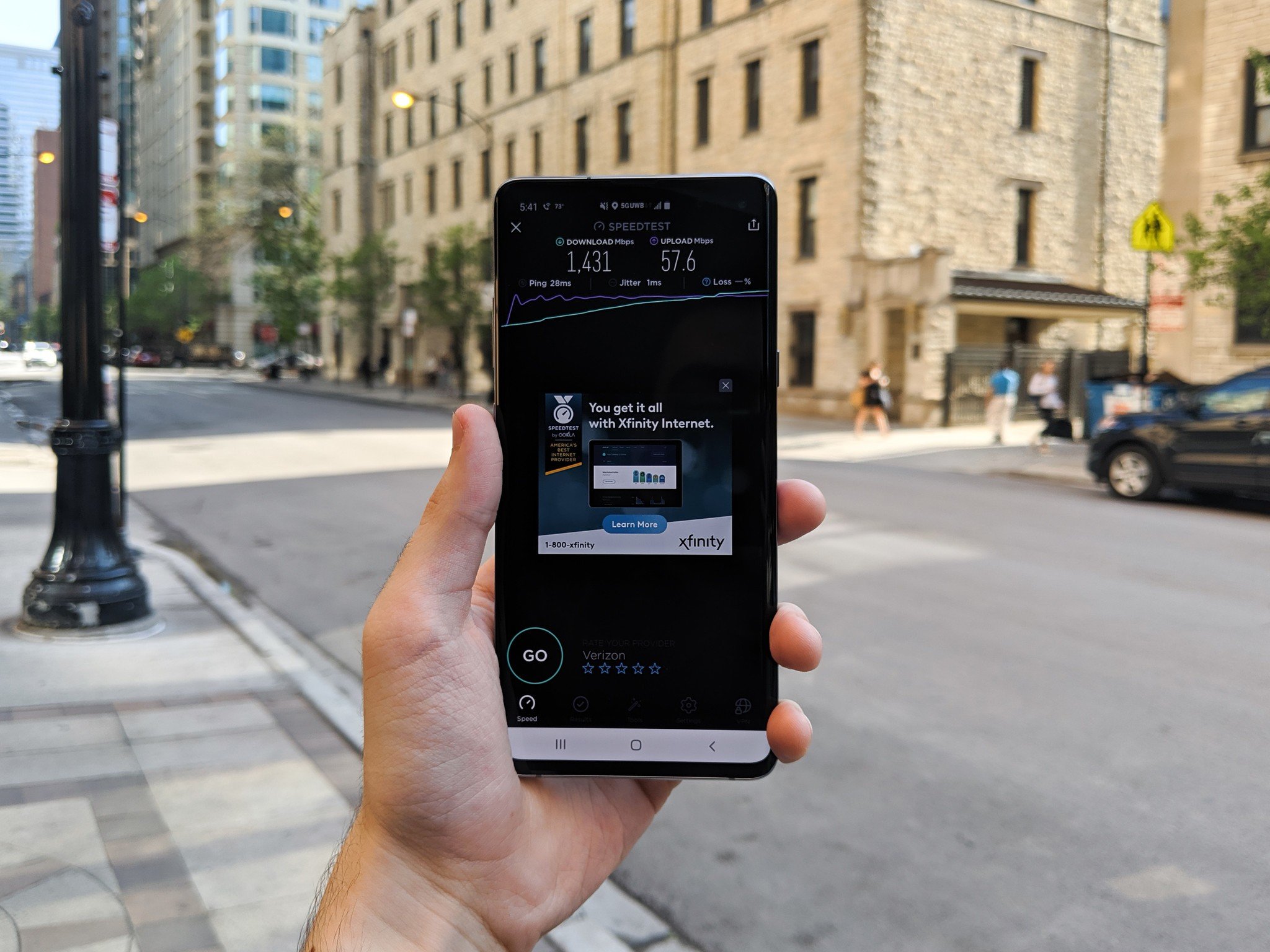Best answer: Sub-6 5G service from T-Mobile and AT&T is on track to cover the majority of Americans in 2020. Plus, there are a lot more options with 5G built-in. If you want a flagship phone with the best possible speeds, it's time to go for 5G.
- 5G as standard: Samsung Galaxy S20 (From $1,000 at Samsung)
- 5G on all T-Mobile plans: OnePlus 7T Pro 5G McLaren ($899 at T-Mobile)
5G coverage is finally here
Sprint and Verizon started deploying 5G for customers in the middle of 2019 but failed to cover the majority of the country. At the end of 2019, T-Mobile and AT&T deployed sub-6 5G at 600MHz and 850MHz respectively. T-Mobile instantly covered most of the country while AT&T took things more slowly with nationwide coverage expected by mid-2020.
Sprint only covers a few cities but does so with consistent coverage thanks to its sub-6 spectrum. Verizon meanwhile has continued to work on its Ultra Wideband, mmWave network but still relies on LTE for the majority of its network coverage. It's in so many more cities in 2020 than it was in 2019.
If you're on Verizon or Sprint and aren't too interested in switching carriers, 5G probably won't mean a whole lot to you just yet. Still, it's worth taking a look at both Verizon's and Sprint's 5G coverage to see if you are covered.
You can check T-Mobile's 5G coverage map and AT&T's dedicated 5G page (click the state links) to see each carriers growing low-band sub-6 coverage areas.
Phone selection and the Snapdragon 865
Flagship Android phones released in 2020 will likely come with a Snapdragon 865 chip powering it and all Snapdragon 865 chips will come with Qualcomm's X55 5G modem. This high-end chip will likely lead to fewer budget-friendly high-performance phones in 2020, but it will mean that a lot of flagships will ship with 5G support whether you want it or not.
All three of Samsung's new Galaxy S20 models come with some sort of 5G connectivity built-in, though only the two larger models support mmWave. Interestingly, T-Mobile has confirmed that the Galaxy S20 phones will support both its and Sprint's 5G spectrum when the networks finally merge. While it remains to be seen how other companies will implement 5G into new phones, there's no doubt that we'll be seeing a lot more of them.
The Galaxy Note 10+ 5G on AT&T and T-Mobile as well as the OnePlus 7T Pro 5G McLaren on T-Mobile support both mmWave and sub-6 5G on an older chipset making them good options for cheaper 5G devices.
Be careful with older 5G phones
The LG V50 ThinQ 5G and the Galaxy S10 5G have an older X50 Qualcomm modem in them meaning that neither phone supports T-Mobile or AT&T's sub-6 network. For most people, these are the sort of 5G networks you'll be using in 2020.
If you are sticking to Sprint or Verizon, for the time being, these phones will work on those networks but not as efficiently as phones equipped with the newer modem. As low-band sub-6 networks become more widespread, these older X50 equipped phones will be severely limited.
What about MVNOs?
If you're on an MVNO such as Visible, you won't get access to 5G just yet. Those carriers will need to add support for 5G before it will work. For T-Mobile MVNOs, this is a lot simpler thanks to its all-in approach to 5G, with 5G already available on the prepaid service Metro by T-Mobile as well as Google Fi with a compatible phone. Still, not all of them are ready to support 5G just yet.
MVNOs will undoubtedly add 5G support in the future but until you know for sure you'll get 5G access, it won't be worth upgrading to a 5G phone on these carriers.
5G as standard
Samsung Galaxy S20
Flagships with 5G
Samsung put 5G in every Galaxy S20 series phone bringing faster speeds, a 120Hz display, and some of the best cameras ever put in a phone.
5G for all
OnePlus 7T Pro 5G McLaren
5G for most people on all plans
OnePlus supports T-Mobile's sub-6 5G network in a sleek phone with a 90Hz display and fast hardware. A popup camera eliminates the need for a screen notch.






Post a Comment